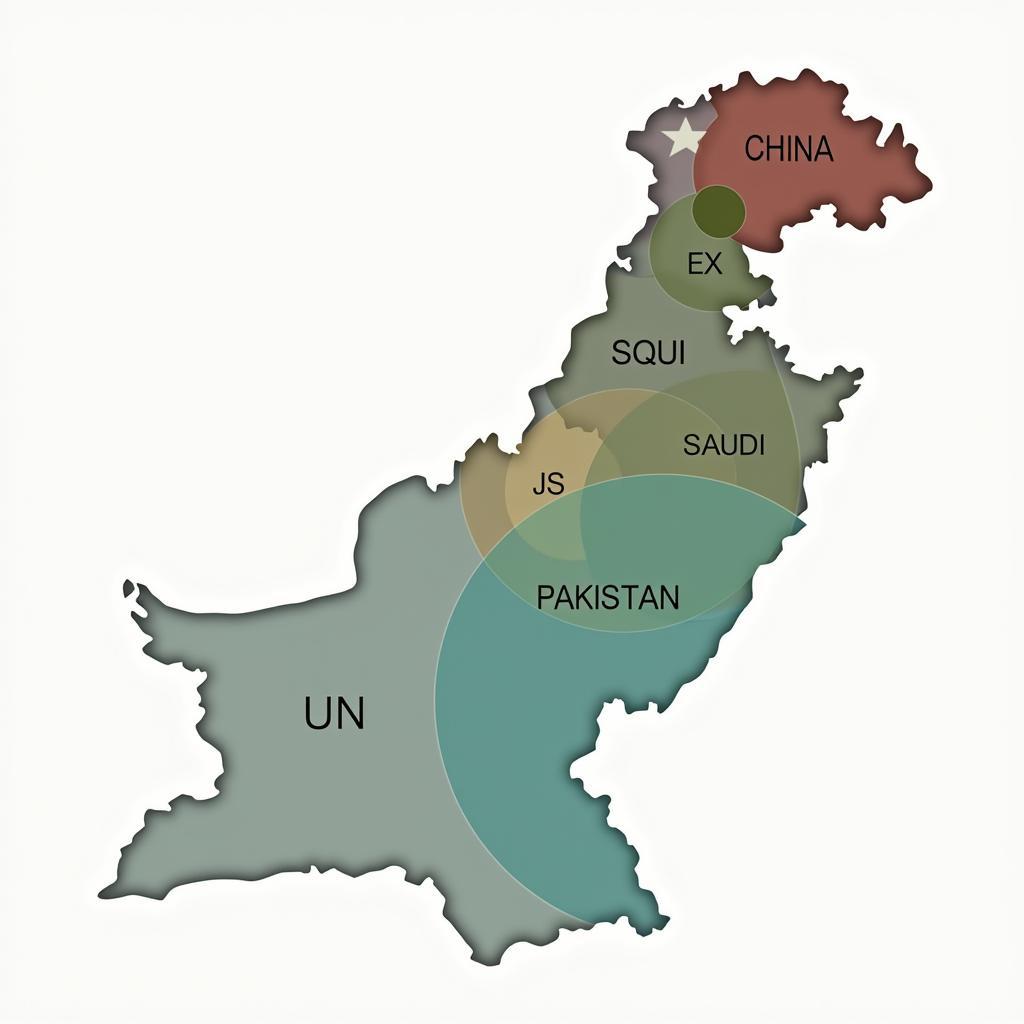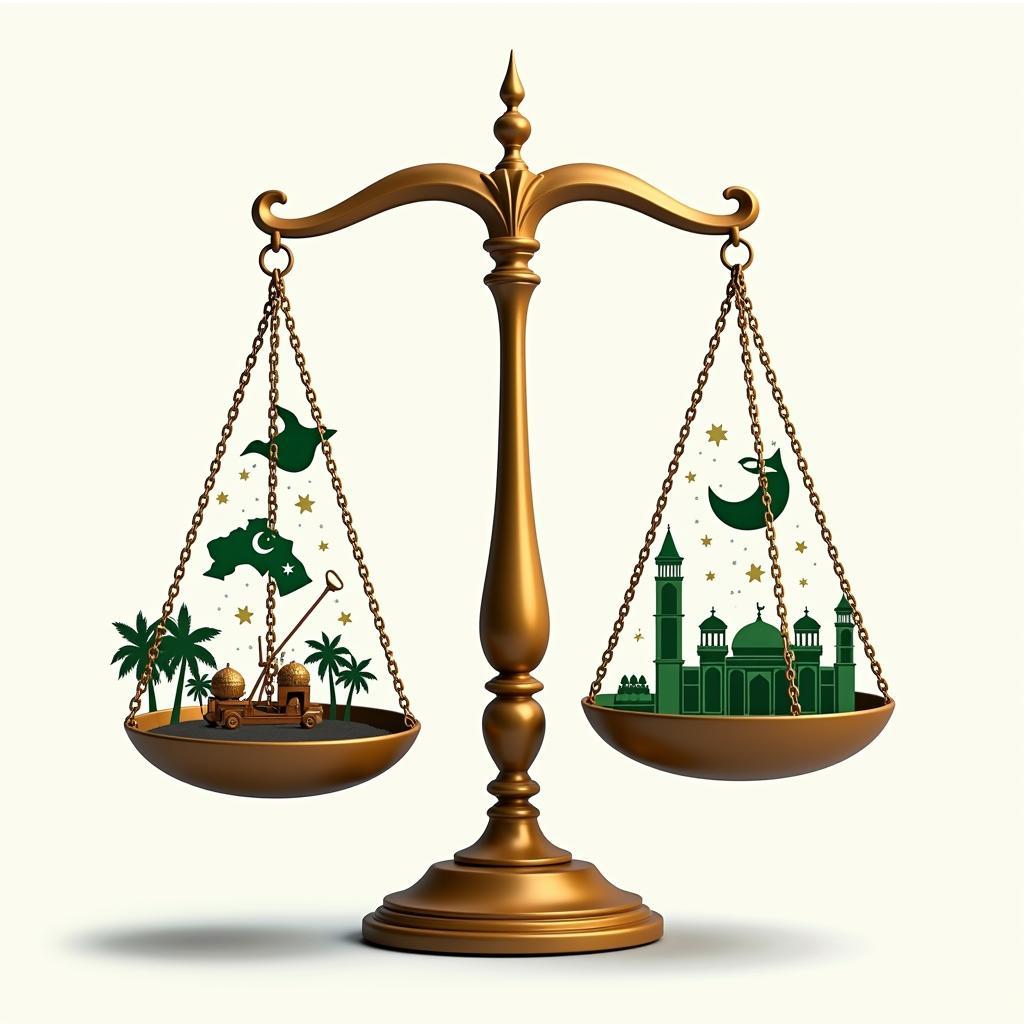Pakistan’s unique geopolitical location and complex history make the Scope Of International Relations In Pakistan a critical area of study and practice. Understanding this scope is crucial for anyone interested in Pakistan’s future, its role in the global arena, and the intricate dynamics shaping its foreign policy. This article will delve into the multifaceted nature of Pakistan’s international relations, exploring its key challenges and opportunities.
 Pakistan's International Relations Landscape
Pakistan's International Relations Landscape
Historical Context of Pakistan’s IR
Pakistan’s international relations have been shaped by its historical experience. From its inception as a newly independent nation in 1947, Pakistan faced numerous challenges, including the Kashmir conflict, which deeply influenced its relationship with India. This early period set the stage for Pakistan’s complex engagement with the international community. The Cold War era saw Pakistan align with the United States, becoming a key ally in the fight against communism. This alliance brought both benefits and drawbacks, shaping Pakistan’s foreign policy for decades to come. The impacts of this alignment are still felt today, particularly in the context of Pakistan’s relationship with the US. For further insight into the external legal landscape, see our article on external law in pakistan.
Key Players in Pakistan’s International Relations
Pakistan’s foreign policy involves a complex interplay with various global actors. The United States remains an important partner, despite periods of tension. China has emerged as a crucial economic and strategic ally, particularly through the China-Pakistan Economic Corridor (CPEC). The relationship with Saudi Arabia and other Gulf states is vital due to religious, economic, and political ties. Furthermore, Pakistan’s engagement with international organizations like the United Nations and the Organization of Islamic Cooperation (OIC) plays a significant role in its foreign policy. You can explore more about the relevance of international relations studies in ir scope in pakistan.
 Pakistan's Foreign Policy Challenges
Pakistan's Foreign Policy Challenges
Economic Dimensions of Pakistan’s IR
Economic diplomacy is a crucial aspect of Pakistan’s international relations. The country actively seeks foreign investment and trade opportunities to boost its economic growth. CPEC, a flagship project of China’s Belt and Road Initiative, is a prime example of Pakistan’s efforts to leverage international partnerships for economic development. The pursuit of trade agreements and participation in regional economic forums are also key components of Pakistan’s economic diplomacy. For aspiring English majors interested in a career in international relations, you might want to check out the scope of bs english in pakistan.
What are Pakistan’s primary foreign policy objectives?
Pakistan’s foreign policy primarily aims to safeguard its national security, promote economic development, and enhance its regional and global standing.
How does the Kashmir issue impact Pakistan’s foreign policy?
The Kashmir conflict remains a central issue in Pakistan’s foreign policy, impacting its relationship with India and shaping its interactions with the international community.
Security Challenges and Opportunities in Pakistan’s IR
Pakistan faces significant security challenges, including terrorism, regional instability, and the ongoing conflict in Afghanistan. These challenges necessitate a robust foreign policy that prioritizes counter-terrorism efforts, regional cooperation, and conflict resolution. Pakistan plays a crucial role in regional security dialogues and initiatives, working with neighboring countries and international partners to address shared security concerns. Those interested in understanding Pakistan’s political landscape better may find the pakistan affair syllabus helpful.
Dr. Ayesha Khan, a prominent Pakistani scholar of international relations, notes, “Pakistan’s strategic location necessitates a nuanced and proactive foreign policy approach to navigate the complex regional dynamics.” This proactive approach requires a deep understanding of international law and its implications for Pakistan.
The Future of Pakistan’s International Relations
The scope of international relations in Pakistan is constantly evolving. As the world becomes increasingly interconnected, Pakistan’s role in global affairs will continue to grow in importance. The country’s foreign policy must adapt to emerging challenges and opportunities, including climate change, globalization, and technological advancements. Pakistan will need to strengthen its diplomatic capabilities, build strategic partnerships, and actively participate in international forums to effectively address these issues and secure its place in the global community. Those exploring career options in the medical field might find our article on bsn medical pakistan useful.
Ambassador Tariq Fatemi, a seasoned diplomat with extensive experience in Pakistani foreign policy, emphasizes, “Pakistan must prioritize economic diplomacy and leverage its strategic location to become a regional hub for trade and connectivity.”
In conclusion, the scope of international relations in Pakistan is broad and dynamic. By understanding the historical context, key players, economic dimensions, and security challenges, we can gain a deeper appreciation for the complexities of Pakistan’s foreign policy. As Pakistan continues to navigate the evolving global landscape, its engagement with the international community will remain crucial for its future prosperity and security.
FAQ
- What are the main challenges facing Pakistan’s foreign policy?
- How does CPEC impact Pakistan’s relations with other countries?
- What is Pakistan’s role in regional security initiatives?
- How can Pakistan leverage its strategic location to enhance its economic development?
- What are the key priorities for Pakistan’s future foreign policy?
- What are the major diplomatic relationships Pakistan maintains?
- How does Pakistan engage with international organizations like the UN?
You might also be interested in reading more about the specific areas related to Pakistan’s foreign policy and its impact.
For further assistance, please contact us at Phone Number: +923337849799, Email: news.pakit@gmail.com, or visit our office at Dera Ghazi Khan Rd, Rakhni, Barkhan, Balochistan, Pakistan. We have a 24/7 customer service team available to assist you.